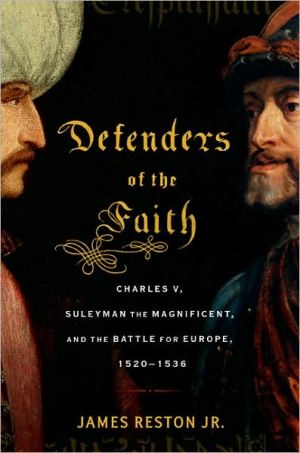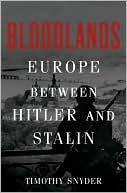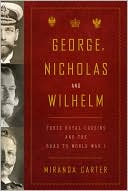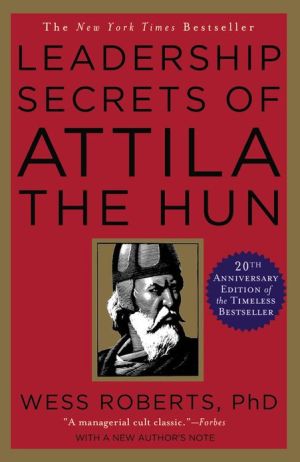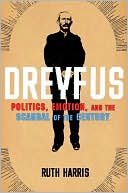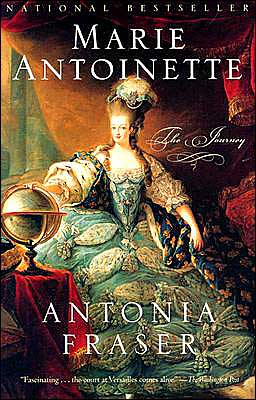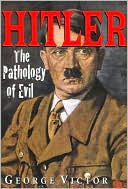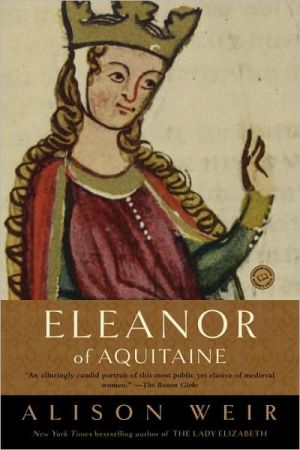Defenders of the Faith: Charles V, Suleyman the Magnificent, and the Battle for Europe, 1520-1536
A bestselling historian recounts sixteen years that shook the world- the epic clash between Europe and the Ottoman Turks that ended the Renaissance and brought Islam to the gates of Vienna\ In the bestselling Warriors of God and Dogs of God, James Reston, Jr., limned two epochal conflicts between Islam and Christendom. Here he examines the ultimate battle in that centuries-long war, which found Europe at its most vulnerable and Islam on the attack. This drama was propelled by two astonishing...
Search in google:
A bestselling historian recounts sixteen years that shook the world— the epic clash between Europe and the Ottoman Turks that ended the Renaissance and brought Islam to the gates of ViennaIn the bestselling Warriors of God and Dogs of God, James Reston, Jr., limned two epochal conflicts between Islam and Christendom. Here he examines the ultimate battle in that centuries-long war, which found Europe at its most vulnerable and Islam on the attack. This drama was propelled by two astonishing young sovereigns: Holy Roman Emperor Charles V and Turkish sultan Suleyman the Magnificent. Though they represented two colliding worlds, they were remarkably similar. Each was a poet and cultured cosmopolitan; each was the most powerful man on his continent; each was called “Defender of the Faith”; and each faced strident religious rebellion in his domain. Charles was beset by the “heresy” of Martin Luther and his fervid adherents, even while tensions between him and the pope threatened to boil over, and the upstart French king Francis I harried Charles’s realm by land and sea. Suleyman was hardly more comfortable on his throne. He had earned his crown by avoiding the grim Ottoman tradition of royal fratricide. Shiites in the East were fighting off the Sunni Turks’ cruel repression of their “heresy.” The ferocity and skill of Suleyman’s Janissaries had expanded the Ottoman Empire to its greatest extent ever, but these slave soldiers became rebellious when foreign wars did not engage them.With Europe newly hobbled and the Turks suffused with restless vigor, the stage was set for a drama that unfolded from Hungary toRhodes and ultimately to Vienna itself, which both sides thought the Turks could win. If that happened, it was generally agreed that Europe would become Muslim as far west as the Rhine.During these same years, Europe was roiled by constant internal tumult that saw, among other spectacles, the Diet of Worms, the Sack of Rome, and an actual wrestling match between the English and French monarchs in which Henry VIII’s pride was badly hurt. Would—could—this fractious continent be united to repulse a fearsome enemy? Publishers Weekly In this vibrant piece of intellectual history, Reston completes the saga of the relationship between East and West he began with Warriors of God. Combining a historian's attention to detail and a novelist's narrative flair, Reston focuses on the period when the Ottoman Empire came within a hair's breadth of conquering Europe. The Sultan Suleyman swore to accomplish what his father and grandfather had not-conquer the Holy Roman Empire. Standing in his way was an equally ambitious leader, the young Holy Roman Emperor, Charles V. As Reston observes, each faced rebellion and fractiousness within his own empire. Although Charles defeated Suleyman at Güns, now in Hungary, the Turks had spread terror through Europe by moving farther into Christian lands than ever before. By examining this short but crucial span of years, Reston not only brings to life two "Olympian" figures who believed they were carrying out the will of God; he also offers a lucid window onto Renaissance Europe and the foundations of contemporary debates between the West and Islam. (May 18)Copyright © Reed Business Information, a division of Reed Elsevier Inc. All rights reserved.
\ Publishers WeeklyIn this vibrant piece of intellectual history, Reston completes the saga of the relationship between East and West he began with Warriors of God. Combining a historian's attention to detail and a novelist's narrative flair, Reston focuses on the period when the Ottoman Empire came within a hair's breadth of conquering Europe. The Sultan Suleyman swore to accomplish what his father and grandfather had not-conquer the Holy Roman Empire. Standing in his way was an equally ambitious leader, the young Holy Roman Emperor, Charles V. As Reston observes, each faced rebellion and fractiousness within his own empire. Although Charles defeated Suleyman at Güns, now in Hungary, the Turks had spread terror through Europe by moving farther into Christian lands than ever before. By examining this short but crucial span of years, Reston not only brings to life two "Olympian" figures who believed they were carrying out the will of God; he also offers a lucid window onto Renaissance Europe and the foundations of contemporary debates between the West and Islam. (May 18)\ Copyright © Reed Business Information, a division of Reed Elsevier Inc. All rights reserved.\ \ \ \ \ Library JournalThe years 1520-36 were filled with political and religious upheaval in Europe. In lucid prose, Reston (Dogs of War) ably explains the complexities of the period's geopolitics, taking us through Africa, the Middle East, and Europe without losing us on the way. Written for popular consumption, the book describes how the religious divisions between Protestants and Catholics and the political divisions among the Papal States, France, England, and Spain made all of Europe susceptible to the invading Ottoman Empire. The triumphs and failed intrigues of Francis I, Henry VIII, Charles V, Suleyman the Magnificent, Ibrahim Pasha, Martin Luther, and Pope Clement VII opened Europe to Islamic forces, which erached the gates of Vienna before they were turned back. As the title indicates, all of these figures were motivated primarily by their religious convictions. Without explicitly referencing them, Reston helps the lay reader grasp the root causes of religious tensions that exist to this day between Protestant and Catholic, Christian and Muslim, and Sunni and Shiite. Fast-paced and engaging, this is excellent reading for popular audiences. (Index not seen.)\ —Michael Farrell\ \ \ \ Kirkus ReviewsThe history of an "epic clash of civilizations."Journalist Reston (The Conviction of Richard Nixon: The Untold Story of the Frost/Nixon Interviews, 2007, etc.) is the author or two previous books about major Christian-Muslim clashes-Dogs of God (2005) and Warriors of God (2001). Here he looks at a turbulent time featuring not one but several brutal confrontations. His Christian protagonist is Charles V (1500-58), who became Holy Roman Emperor thanks to his grandfather, Maximilian I. Charles also inherited the Low Countries from his father and the Spanish Empire from his other grandparents. Opposing Charles was Suleyman I (1494-1566), sultan of the Ottoman Empire under whom it reached the height of its power. Reston stresses that these deeply pious rulers loathed each other less than heretics within their own religion. Charles worked to suppress the charismatic Martin Luther's rebellion against Catholic doctrine. A Sunni Muslim, Suleyman massacred Shi'ites within his realm and repeatedly invaded Shi'ite Persia in an effort to wipe them out. Both efforts failed, but three massive Ottoman invasions of Europe got as far as the gates of Vienna. History would have been vastly different had they succeeded, which almost happened because Charles and a colorful cast of secondary characters-Henry VIII of England, Francis I of France, Luther, several scheming popes-preferred to battle each other. Reston recounts the facts without the breathless dramatics many popularizers cannot resist, but since he is not a professional historian, there are few strong opinions and little deep analysis. A competent account of a spectacularly eventful historical period.\ \
